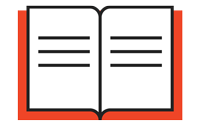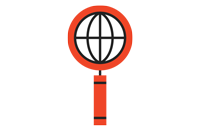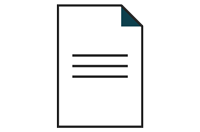Recent Publications & Learning
Doing development differently starts with better evidence and learning.
Doing development differently starts with better evidence and learning.

As part of INNOVATE, a three-year initiative assessing the potential of non-traditional finance to enable adoption of smallholder agricultural innovations in South Asia, South America and East Africa, MEDA and MarketShare Associates produced a learning paper examining the role of digital platforms and the importance of customer and user experiences to reach and serve smallholder farmers. Through a review of the literature and in-depth interviews with firms leading the development of digital platforms for smallholders and relevant ecosystem players, this paper examines lessons learned for improving customer experiences and fostering increased uptake and sustained use of AgTech innovations.
Read More
The MarketShare Associates team shares lessons learned as part of the Arab Women’s Enterprise Fund (AWEF) for effectively collecting and using data to stimulate increased women’s economic empowerment through a market systems approach. Funded by the U.K. Department for International Development (DFID), AWEF has been one of DFID’s flagship women’s economic empowerment programmes working in Jordan, Egypt and until March 2018, the Occupied Palestinian Territories. This blog focuses on using data for programme design, to stimulate crowding-in, to learn and pivot strategies, and to understand systemic change.
Read More
MarketShare Associates was engaged as MEDA’s INNOVATE learning partner to produce a series of briefs highlighting key results and learnings from its research portfolio assessing the potential of non-traditional finance to stimulate agricultural innovation adoption among smallholder farmers in South Asia, South America and East Africa. This brief focuses on experiences and lessons learned from the pilot project implemented by I-DEV International, “Mobile Money & Pay-AsYou-Go (PAYG) Innovation to Scale: AgTech Adoption in the Smallholder Value Chain”.
Read More
Limited data on the number of women workers, the roles they play, and the barriers and opportunities they face can mean that companies, and even entire sectors, exclude or underutilise women’s talents. This webinar drew on MarketShare Associates' work supporting the Arab Women’s Enterprise Fund (AWEF) to stimulate increased women’s economic empowerment through a market systems approach. Speakers presented diverse approaches to collecting and using data to enhance understanding of the risks and opportunities for women within a company’s business operations and supply chains.
Read More
MarketShare Associates (MSA) was engaged as MEDA’s learning partner on INNOVATE and produced a series of briefs highlighting key results and insights from the research portfolio assessing the potential of non-traditional finance to stimulate agricultural innovation adoption among smallholder farmers in South Asia, South America and East Africa. MSA produced this brief summarizing findings from the case study conducted by Agronomy Technology Limited (ATL) titled: “A Case Study of the Chithumba Model: a non-traditional finance mechanism to improve access to farm inputs in Malawi”. The briefoutlines the Chithumba bundled services model that includes loans, inputs, Good Agricultural Practices (GAP) training, and marketing services. The brief also highlights recommendations for agri-inputs credit issuers, implementing organizations, and agribusinesses.
Read More
MarketShare Associates (MSA) was engaged as MEDA’s learning partner on INNOVATE, and produced a series of briefs highlighting key results and learnings from the research portfolio assessing the potential of non-traditional finance to stimulate agricultural innovation adoption among smallholder farmers in South Asia, South America and East Africa. MSA produced this brief summarizing key findings and recommendations for government actors and financial institutions from the case study conducted by Global Canopy on “Redefining Finance for Agriculture: Green Agricultural Credit for Smallholders in Peru”.
Read More
With the growing prevalence of Good Agricultural Practices (GAP) requirements, smallholder farmers face a business investment decision involving substantial risk and complexity. This blog post, co-authored by MSA as learning partner of the MEDA INNOVATE initiative, makes the case for embracing a business orientation in GAP promotion and provides recommendations for taking a customer-centric approach to engaging smallholder farmers.
Read More
The economic costs of gender-based violence (GBV) are immense and preventing and mitigating GBV saves money. For businesses, costs associated with GBV include absenteeism, loss of productivity, and time spent outside of work at court or participating in services for survivors. This blog post unpacks the potential benefits and risks of engaging the private sector in addressing GBV. The MSA team also shares promising examples of development sector and private sector partnerships in Egypt and Sierra Leone and looks to what’s next for partnering with the private sector in market systems and agricultural programming.
Read More
In this webinar, speakers from MarketShare Associates (MSA), the Arab Women’s Enterprise Fund (AWEF), and BSR discussed how a compelling business case can help firms understand why women’s inclusion and empowerment is important for their mission and values, business model and stakeholders. MSA also shared diverse approaches, tools, data and metrics from the Practitioner Learning Brief, Working with the Private Sector to Empower Women: How YOU Can Build a Business Case for Change (2019), produced by MSA as part of the AWEF project.
Read More
MarketShare Associates moderated a side event on “Shifting Social Norms for Women's Economic Empowerment” hosted by the SEEP Network at the 2019 Women Deliver Conference in Vancouver, Canada. This blog post summarizes seven lessons learned in shifting social norms for women’s economic empowerment. The session explored how members of SEEP’s Women’s Economic Empowerment Working Group have tackled gender norms in the context of their work in developing countries. Speakers from Oxfam, IPSOS, Women for Women International, ICRW, World Vision International, and MEDA drew on practical examples and strategies for understanding, measuring and changing social norms.
Read More